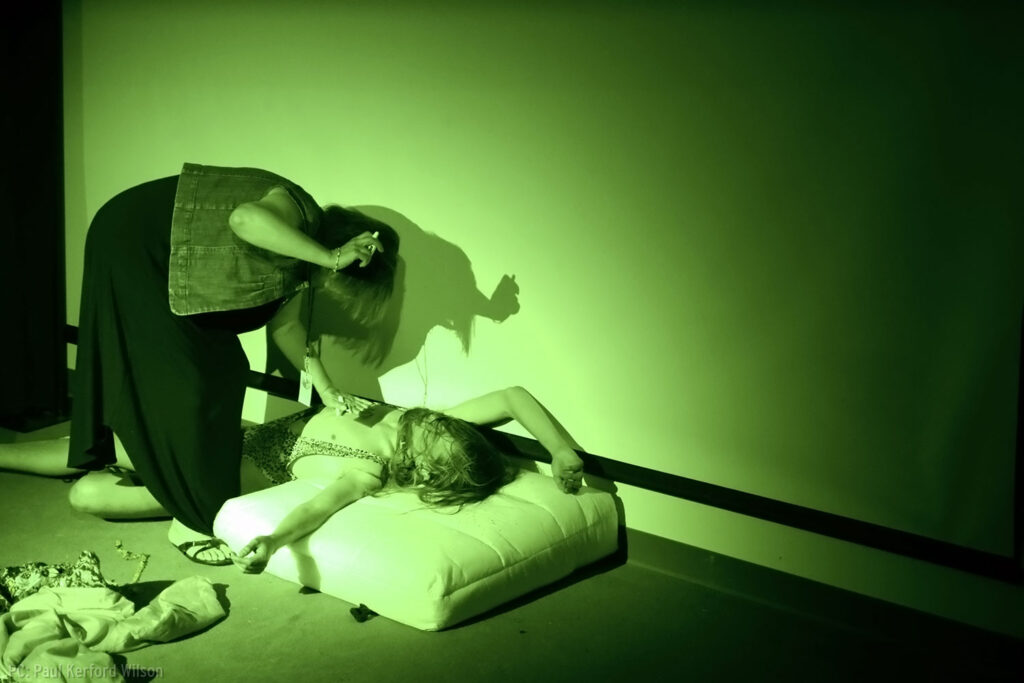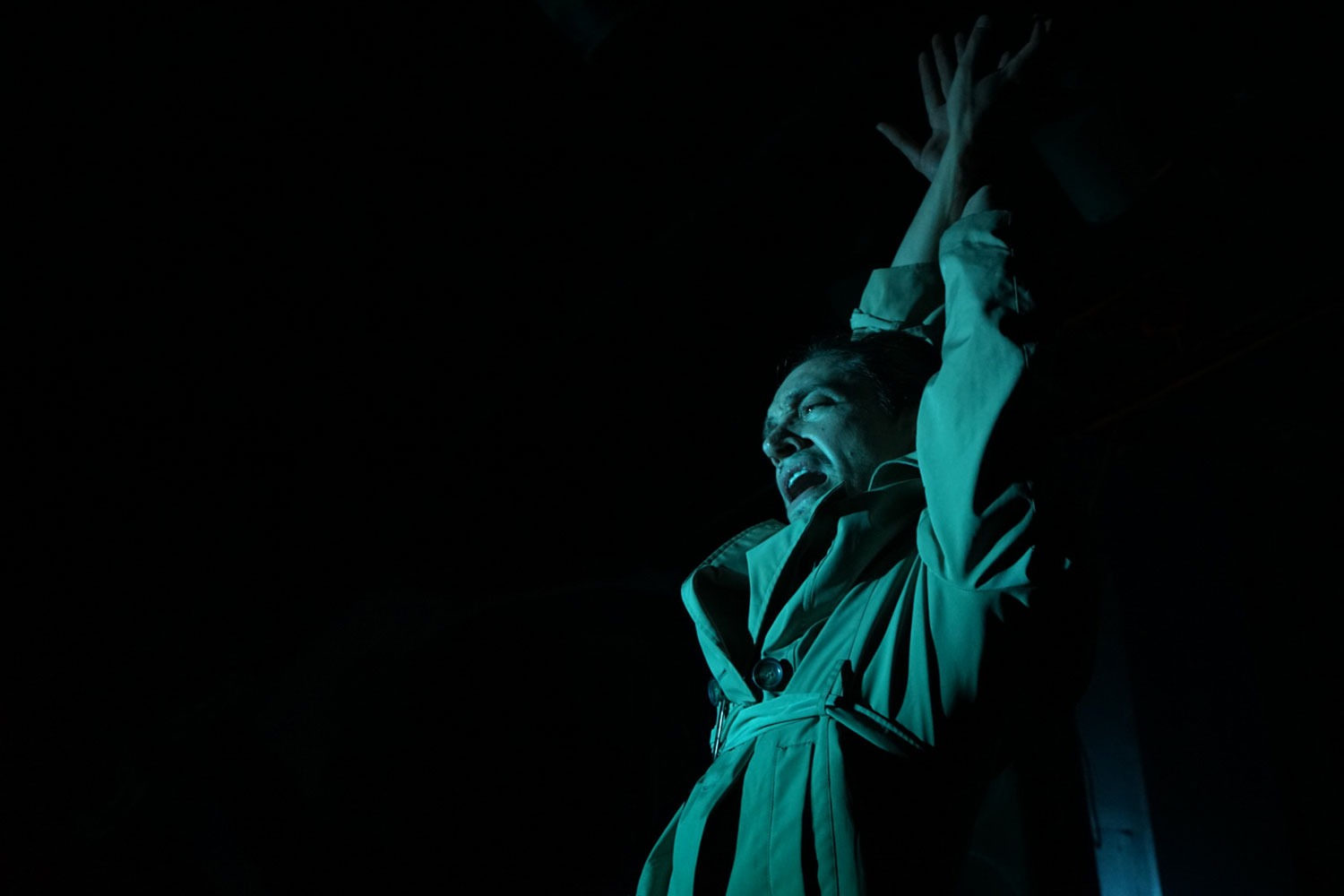A surreal mashup of absurd comedy and heartfelt tragedy, the one-man show Spank Bank Time Machine takes audiences on an emotional roller coaster, riding high on laughter and plunging into introspection.
The show is part of Steppenwolf’s LookOut performance series, which includes artists and companies across genre and form. Spank Bank’s creator and performer John Michael will transform the intimate 1700 Theater into a playground of wild antics and overdose prevention education on June 28-29.
Michael, a self-taught contemporary clown with 12 years of experience, has built a reputation for using physical comedy, props, absurdity, and audience interaction to tackle heavy topics. His productions showcase his unique ability to blend humor with deeply personal narratives. In one of his past shows, Meatball Seance, he summoned his deceased mother by cooking her meatballs to meet his boyfriend.
“I tend to focus on things that to me seem outrageous, and a lot of that is about grief, our hesitancy to talk about grief and stigma,” Michael says.
Spank Bank Time Machine, directed and co-produced by Elizabeth Lovelady, starts with a journey through Michael’s most memorable orgasms, utilizing time travel as a comedic vehicle.
Lovelady describes the first act as wild and frenetic, filled with irreverent humor. As the play progresses, it gradually shifts into a more somber tone, exploring the tragic overdose deaths of two of Michael’s close friends, affectionately named Gay Evel Knievel and Fun Monster.

The performance then transitions from a whimsical comedy to a poignant portrayal of loss, drawing the audience into a deeper narrative about grief, friendship, and the societal stigma surrounding drug-related deaths.
Lovelady, who has been instrumental in bringing Michael’s vision to life, highlights the delicate balance the show strikes between comedy and tragedy.
“It’s a really important piece that is a really fun time while you’re in the theater, but it sneaks in an important message, almost like sneaking vegetables into cookies,” Lovelady says.
The show’s title itself is a testament to Michael’s ability to infuse humor into even the most serious subjects.
“The idea of the title is itself to make you laugh without even trying,” Michael says. “When you just say you’re going to see something called Spank Bank Time Machine, it makes you laugh.” Michael says it’s a disarming mechanism, allowing audiences to engage with the underlying themes of the show without the typical resistance that such topics might provoke.
Michael’s decision to create a dark comedy around the death of his friends was driven by his desire to change how people perceive and talk about overdose deaths.
“When I would tell people I lost friends to overdose, their tone would change, and I emphasize that I want people to remember my friends as the fun people they were instead of being defined by their last moments of life,” he says.
By incorporating humor, Michael aims to humanize his friends and shift the focus from their deaths to their lives, celebrating their quirks, their joy, and their individuality. In addition to commemorating his friends, Spank Bank Time Machine serves a crucial public health purpose.
Michael has woven a Narcan training session into the fabric of the show, turning a theatrical performance into a life-saving educational experience.
“Narcan is the only FDA-approved time machine,” Michael says. “The time travel window is up to six minutes after you overdose. You can’t time travel by yourself, so don’t use drugs by yourself.”
Patrick Zakem, creative director at Steppenwolf, describes Spank Bank as a Trojan horse,entertaining while subtly delivering a powerful message. “I’ve never experienced something quite like the show,” Zakem says. “It’s a surreal mashup of in-your-face clowning, solo performance art, and vital public health advocacy. It keeps its audience on its toes.”
“When my friends died, it left such a shadow of stigma and shame that I didn’t like how their story was being handled,” Michael says. “I wanted to evoke their queerness and their sense of humor back into the conversation.”



